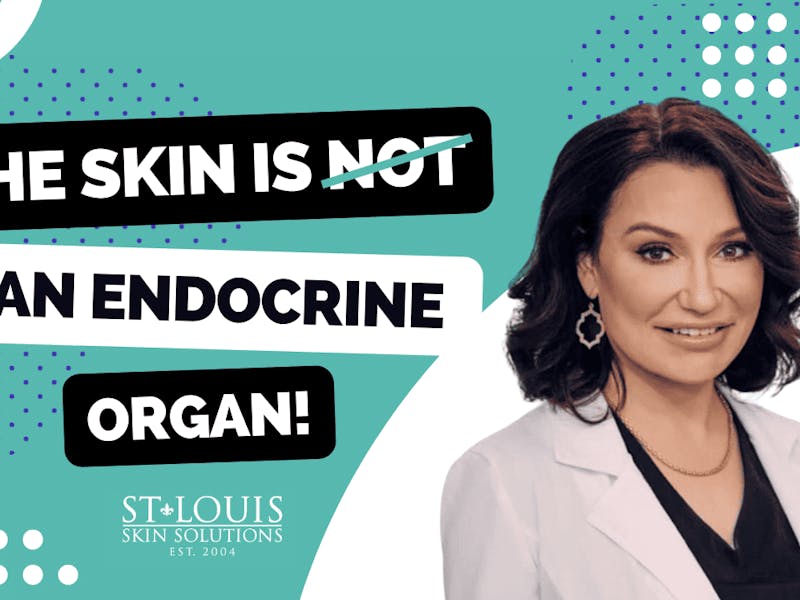
Let me start by noting my training occurred over 25 years ago, so hopefully things have changed, at least a bit. It seems to me, however, that thought processes in conventional medicine change at a glacial pace. Presumed ‘facts’ that are widely accepted by the medical community get deeply rooted, can be the source of confusion and suffering for patients, yet can still be difficult to uproot. Occasionally this resistance to change is a good thing, so fads and trends that don’t have staying power are passed over. Often though, important discoveries are ignored and delayed because they are contrary to conventional wisdom.
Take for example the doctors that discovered bacteria cause stomach ulcers. They were ridiculed and ostracized, since no bacteria could possibly live in the acidic environment of the stomach. One doctor was fined a hefty fee for treating an ulcer patient with antibiotics. After a half century of debate, they received the noble prize in Medicine in 2005 for their discovery (and persistence!) and now it is considered common knowledge, and a given, that antibiotics help heal ulcers. Same thing with eating carbs to lose weight. Remember the food pyramid with rice and pasta on the base level? That backfired! For years testosterone supplementation was thought to cause prostate cancer. Wrong! We now know testosterone helps protect against prostate cancer. Modern medicine can be smugly sure of itself, promoting things only to be humbled later when more information is uncovered. (NOT talking about vaccines here, we have known since the first smallpox vaccination experiments in 1796 that vaccines work and have been proven for over 200 years!!!!!)
Let’s avoid getting off on a political tangent. I want to discuss the importance of hormones for skin health, as well as for overall health. As a medical student I was told by a dermatologist the “the skin is not an endocrine organ” and hormone treatment was not appropriate for skin diseases. Well, that’s just plain wrong. The skin abounds with estrogen, progesterone, testosterone, dehydroepiandrosterone (DHEA) and even melatonin receptors (1). Melatonin is actually produced by the skin (2) as well! Hormone receptors are why birth control pills can be helpful for acne, estrogen can quench dry, depleted skin and progesterone promotes scalp hair growth (3). The skin most definitely IS an endocrine organ.
Do you know what else are endocrine organs? The brain is a big one, the bones, the gut, the heart (4), lung (5) and so on. It’s not just the reproductive organs that benefit from hormones, it’s basically all parts of us that get a boost. That’s why the WHI study (Women’s Health Initiative) from 1993, was so destructive. In 2002, the study prematurely stopped one arm of the study which was analyzing the effects of a combined estrogen and progestin regimen on health. The authors reported a small increase in breast cancer, heart disease, stroke and blood clots. This was sensationalized by the media and sparked fear in the medical community and general public (6). Millions of women were denied their hormone replacement and the suffering began. In hindsight, the number of deaths and morbidity associated with this disruption helped the medical community to realize that maybe there was some flawed data coming out of the WHI.
The errors from the WHI study are numerous and debated to this day. Studies since then, including the Million Women Study and a Danish study of about 600,000 women, report no increase in heart disease and in fact, a protective benefit for the cardiovascular system when proper hormone replacement is used after menopause (7). There was found to be a small increase in the risk of breast cancer however. This is why many medical professionals recommend minimal dosing for the shortest amount of time possible, ignoring the benefit long term use of hormones can confer.
Why do some women have an increased risk of breast cancer? Well, there is still much we don’t know. We do know, however, that certain women metabolize or breakdown their estrogen into pro-cancer molecules. This pathway or breakdown process can be minimized by certain dietary adjustments or medications, and the estrogen can be “forced” down the harmless pathway. Problem is, most providers don’t look for this ‘bad pathway’ propensity in their patients. There are lab tests that can determine if your metabolism takes the “bad route” and labs test that monitor your response to interventions to get you on the ‘good route’.
As a recent menopause survivor, I am going to go out on a limb and say having estrogen and progesterone on board during and after menopause are well worth the lab testing to monitor my estrogen metabolism. I feel so much better, physically and emotionally. I recently started hormone pellets and I am never going to give them up!! I take progesterone orally and have estrogen and testosterone pellets placed in my buttocks every 3 months. My energy and libido are way up (hubby is happy about that), I am not as cranky (bitchy?), I sleep better and I seem to be handling stress better by using more productive coping mechanisms (sex and exercise!). I know that I grow into old age, I will be healthier, with better, less wrinkly skin and less hair loss. What’s not to love?
If you have any symptoms of hormone depletion, it is well worth looking into HRT (hormone replacement therapy). It can truly be life changing, AND SAFE, if done correctly and monitored appropriately. That is why we want to be able to offer it to our patients. Not only will help you look better (8), which is what we are all about at St. Louis Skin Solutions™, it will help you feel better and help you age gracefully. I have been contemplating adding hormone treatments to our menu for years, but I was unable to find the right doctor to join our practice. I am excited to say that the search is over! Our new doctor has over 25 years clinical experience and will be open for appointments soon. Stay tuned for more info!
References:
1. Bocheva G, Slominski RM, Janjetovic Z, Kim TK, Bohn M, Steinbrink K et al. Protective Role of Melatonin and its Metabolites in Skin Aging. Int. J. Mol. Sci. 2022, 23, 1238.
2. Slominski A, Slominski TW, Zmijewski MA, Wortsman J, Semak I, Zbytec B et al. On the Role of Melatonin in Skin Physiology and Pathology. Endocrine. 2005 July;27(2):137-148.
3. Grymowicz M, Rudnicka E, Podfigura A, Napierala P, Smolarczyk R, Smolarczyk K et al. Hormonal Effects on Hair Follicles. Int. J. Mol. Sci. 2021, 21, 5432.
4. Babiker FA, De Windt LJ, van Eickels M, Grohe C, Meyer R, Doevendans P. Estrogenic Hormone Function in the Heart: Regulatory Network and Function. Cardiovascular Research. 2002;53:709-719.
5. LoMauro A, Aliverti A. Sex and Gender in Respiratory Physiology. European Respiratory Review. 2021;30:210038.
6. Barr K, Kurtti A, Jagdeo J. The Role of Hormone Therapy in Female Aesthetic Rejuvenation. J. Drugs. Dermatol. 2022;21(9):954-960.
7. HRT: The History: https://www.womens-health-concern.org/help-and-advice/factsheets/hrt-the-history. Accessed Sept, 2022.
8. Lephart ED. A Review of the Role of Estrogen in Dermal Aging and facial Attractiveness in Women. J. Cosmet. Dermatol. 2018;17:282-288.


